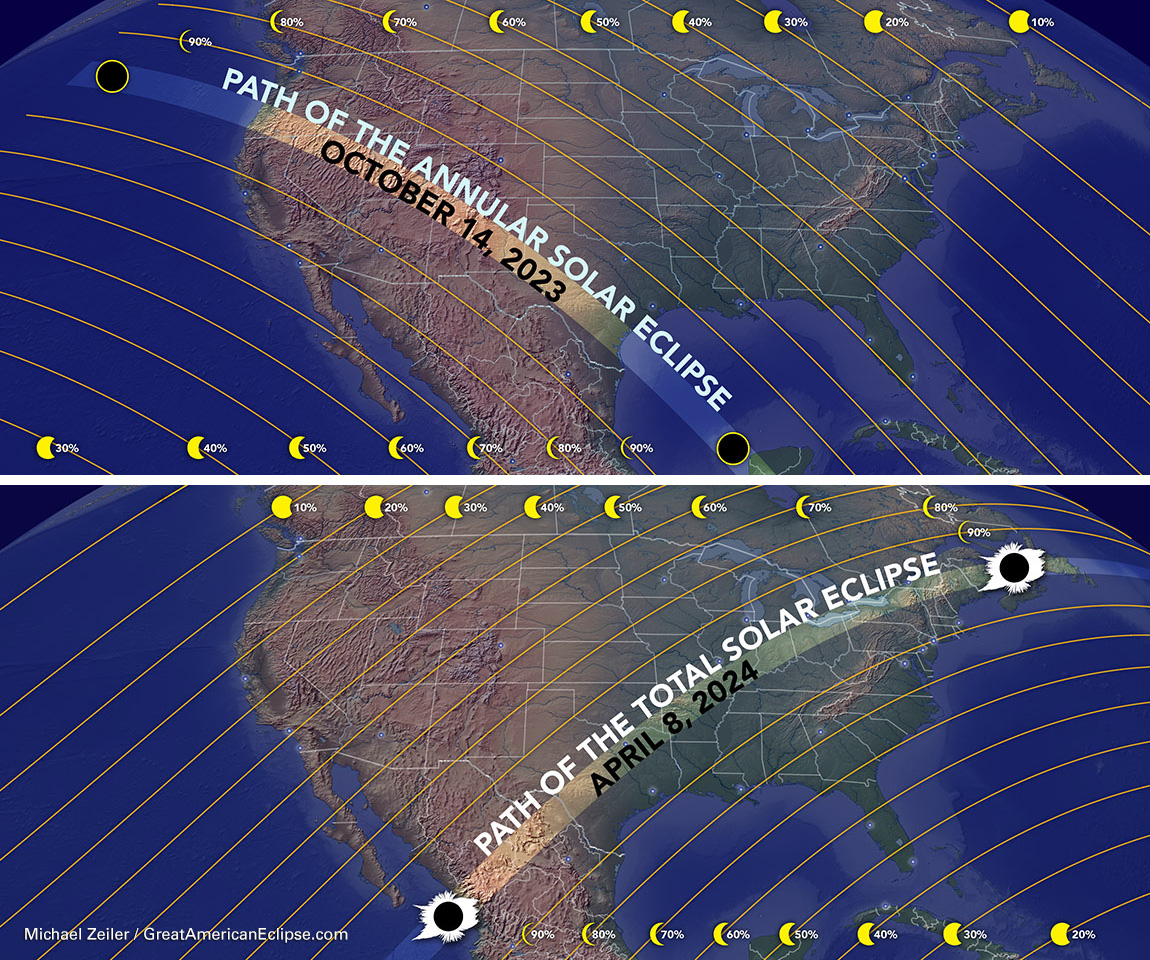Solar Eclipse Planning Workshop at AAS 234 in St. Louis

Richard Fienberg Running Hare Observatory
As all astronomers know, in August 2017 the continental US experienced its first total solar eclipse (TSE) in a generation. In April 2024, now only five years away, the US will have a second TSE, preceded by an annular solar eclipse (ASE) in October 2023. The AAS Solar Eclipse Task Force ran a series of workshops to prepare the nation for the 2017 TSE. These were instrumental in helping communities in the path of totality manage an influx of visitors; in developing and disseminating appropriate eye-safety information nationwide; and in coordinating the efforts of numerous scientific, educational, governmental, and other organizations to avoid unnecessary overlap.
Now is not too early to start planning for the 2023 and 2024 solar eclipses, taking advantage of lessons learned from the 2017 event. Accordingly, the AAS Solar Eclipse Task Force is organizing what we expect will be the first in another series of annual planning workshops. It will be held in conjunction with the 234th AAS meeting in St. Louis, Missouri, 9-13 June 2019. The 1½-day workshop, Saturday-Sunday, 8-9 June, is aimed at community leaders and other stakeholders both inside the paths of annularity (2023) and/or totality (2024) and outside, for — as in 2017 — the entire Lower 48 states will experience at least a deep partial eclipse. We are particularly keen to welcome participants from Canada and Mexico, as the April 2024 TSE also touches parts of those countries.

Attendees are anticipated to include professional and amateur astronomers; formal and informal educators; representatives of tourism bureaus, Chambers of Commerce, and the hospitality industry; and officials from departments of transportation, state- and national-level parks and forests, law-enforcement agencies, and emergency-management organizations. Invited speakers will include event coordinators who experienced the TSE in 2017 and will see darkness again in 2024 (e.g., in SE Missouri and southern Illinois) as well as transportation experts and others who can present studies of the 2017 eclipse and offer recommendations for future events. We will also welcome a limited number of contributed presentations. To request a slot for a contributed presentation, please email Angela Speck, Chair, AAS Solar Eclipse Task Force.
You can sign up for the workshop, for which there is a $15 fee, when you register for the St. Louis meeting.

